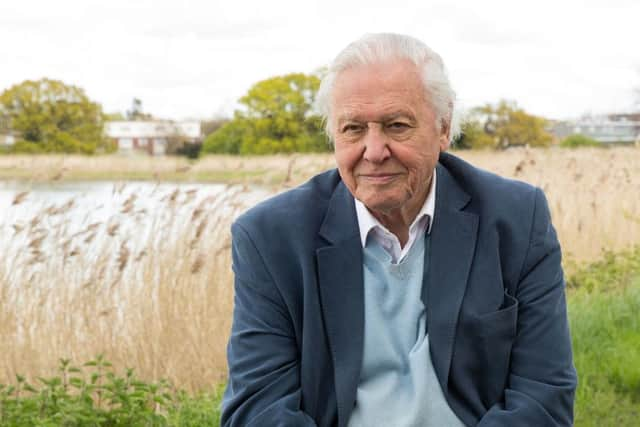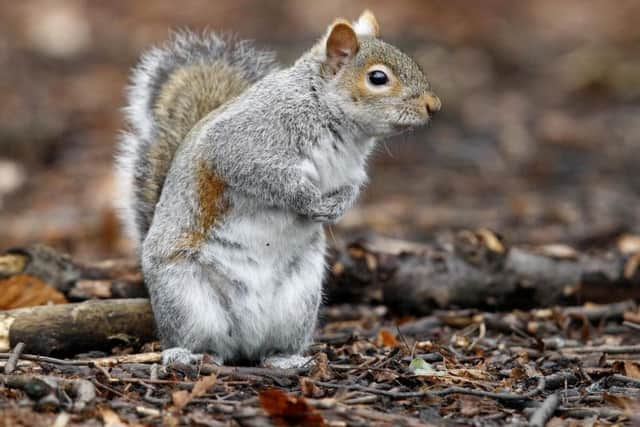David Behrens: Acorn of hope in an era of children losing touch with nature


They demonstrated by the thousand – a strike, they called it.
The cynic in me wonders how many would have taken part had the event been organised on a Saturday, without the carrot of bunking off lessons. But I’ll let that pass.
Advertisement
Hide AdAdvertisement
Hide AdThe bigger issue is that the concern of young people for the natural world, admirable though it is, would be a lot more convincing if they were all able to recognise it when they saw it.


The fact is that traditional outdoor pursuits, like frog spawning, playing conkers and picking blackberries in the autumn, are completely alien to a generation of young people, who have grown up seeing the world only through the prism of a phone screen.
This week, a Rotary Club in Doncaster has been trying to address this by making gifts to the 100 primary schools in its area of The Lost Words, a book that attempts to re-educate the young in the simple pleasures of nature. The headteacher at one of the schools told me that most of the estate kids in her classrooms had no idea about any of them.
The lost words to which the title refers are the 50 or so nature-related terms that have been expunged from the Oxford Junior Dictionary and replaced by 21st century expressions like broadband and chatroom.
Advertisement
Hide AdAdvertisement
Hide AdI don’t have a problem with new words entering the lexicon. English is a living language. But that doesn’t mean we have to impose a one-in, one-out rule.
It has taken – of course – something on a screen to alert today’s children to the changing face of nature. Thanks to Sir David Attenborough’s campaigning documentaries, they can see at second hand some of what their parents and grandparents experienced for themselves by digging around in gardens, ponds and at the edges of the school playing field.
Indeed, Sir David has become so synonymous with natural history lessons that the headteacher to whom I spoke had declared a David Attenborough Day at her school. The pupils don’t get a day off for that one.
This belief that nature is a cause célèbre yet not a tangible part of children’s lives is an anomaly not unique to Doncaster, and fuelled in part by questionable decisions in education policy-making. Playing fields are being sold off by the hundred, according to a report this week. Some 215 have been lost in this decade alone, with schools using the proceeds to plug the holes in their budgets.
Advertisement
Hide AdAdvertisement
Hide AdAt the same time, disadvantaged children are being given free access to “educational apps” that will “help them use their screen time constructively”. Is that a step in right direction? It may help them learn to write, but if they experience so little outside their own four walls, what will they write about?
In the Yorkshire Dales, where children are closer to nature, the threat is to the very existence of many schools – village primaries in communities where families have been priced out. The one at Arkengarthdale, north of Reeth, has just six pupils left. In September, there will be five, and then only three. “We’ve no alternative but to consider the case for closure,” said Charles Cody, one of the governors. “We just don’t have any children.”
It is a conundrum that throws into stark relief the north-south divide within our own region: you can have the great outdoors or a school on your doorstep, but not both.
The balance could be restored by actively encouraging migration from overpopulated parts to the countryside. On a large scale, it would be neither practical nor welcome, yet baby steps in that direction are being taken, with some success, by initiatives such as Great Place, a Lottery and Arts Council-funded project to ferment thriving communities of young, creative types and their children within the Dales. These are people who know a conker when it hits them, and who don’t need to go on strike for the environment because they are already invested in it.
Advertisement
Hide AdAdvertisement
Hide AdIn a forest of despair, this is an acorn of hope. And for younger readers, an acorn is the fruit of an oak tree, which will fall on you if you shake the branches. I expect there’s a video of them on YouTube.